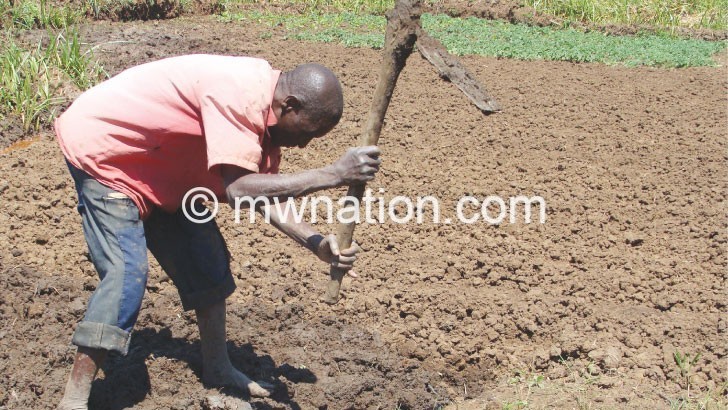Agriculture labour fails to cushion workers—FewsNet
Increasing demand for agriculture labour is limiting access to income as the number of people seeking opportunities is above average and increasing as the lean season progresses, a report has indicated.
A recent report by the Famine and Early Warning Systems Network (FewsNet), a provider of information and analysis on food insecurity, observes that although access to income has improved for many households in recent months, wages are now below average because of increased competition.

“This comes at a time when high maize prices are substantially reducing household purchasing power. As a result, income earned from agricultural labour is proving insufficient for most households to meet their food and basic non-food needs,” reads the report in part.
Ministry of Finance, Economic Planning and Development has this month effected an increase in the minimum wage from K25 012 per month to K35 000, three years after government last increased the minimum wage by 24 percent from K19 000 to K25 000 a month.
Employers Consultative Association of Malawi (Ecam) earlier warned the minimum wage cannot hold in labour-intensive sectors such as agriculture, where profit margins are also low.
The International Fund for Agricultural Development (Ifad), an international financial institution and specialised United Nations, indicated that more than a third of rural households in Malawi earn their livelihoods from farming or fishing while an additional 25 percent combine work on their farm with other jobs.
Agriculture accounts for about 30 percent of gross domestic product (GDP), generates up to 80 percent of national export earnings and employs 64 percent of the country’s workforce while at the same time contributing to food and nutrition security, according to the Japan International Cooperation Agency (Jica) Agriculture Sector Position Paper.
Given below-average Agricultural Development and Marketing Corporation (Admarc) stocks, supplies in Admarc markets are erratic and inadequate, forcing poor households to rely heavily on local markets for food, with a bag of maize now selling at K20 000 per 50 kilogramme bag.
Reserve Bank of Malawi (RBM) Governor Dalitso Kabambe last week admitted that food prices pressure may marginally intensify during the lean period, but is expected to decline at the onset of the next harvest season.
He said inflation rate, currently at 10.4 percent, is projected to average nine percent in 2019.





